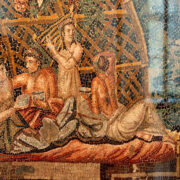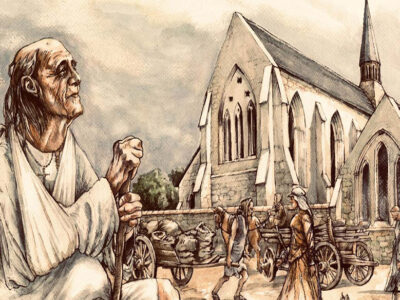Roman slavery, often romanticized in popular media, was a stark contrast to Hollywood glamour. Stripped of rights and possessions, slaves endured lives marked by hardship and brutality. Whether in urban or rural settings, their roles ranged from menial domestic tasks to perilous occupations such as mining and firefighting. Some, captured in warfare, were subjected to gruesome duties as executioners. The road to freedom was fraught with challenges, involving ceremonies of manumission or self-indenture to repay debts. For slaves, existence meant enduring harsh punishments, including beatings and confinement in chains. Their sustenance was meager, primarily consisting of bread and wine, leaving them perpetually hungry for more.
Living Conditions and Segregation
Living quarters, often shared among multiple slaves and situated at a distance from their masters, reflected the segregation enforced upon them by society. Clothing was basic, with distinct garments like togas forbidden to slaves. Day-to-day life was characterized by unrelenting toil, with the looming threat of being thrust into the gladiatorial arena, where some willingly embraced a second servitude. The Roman Senate, cognizant of the potential for unrest, feared the sheer numbers of slaves, recognizing that simmering tensions could erupt into full-scale rebellion.
Spartacus and the Third Servile War
One of the most renowned figures in Roman history, Spartacus, emerged as a gladiator and ultimately led a monumental uprising known as the Third Servile War. This rebellion, marked by widespread unrest and defiance, served as a potent reminder of the pervasive discontent among the enslaved population. Despite sporadic legal reforms aimed at ameliorating conditions, Roman slavery persisted, indifferent to racial distinctions, until the eventual collapse of the empire in 476 AD. This watershed moment marked the conclusion of a dark and tumultuous chapter in human history.










Comments